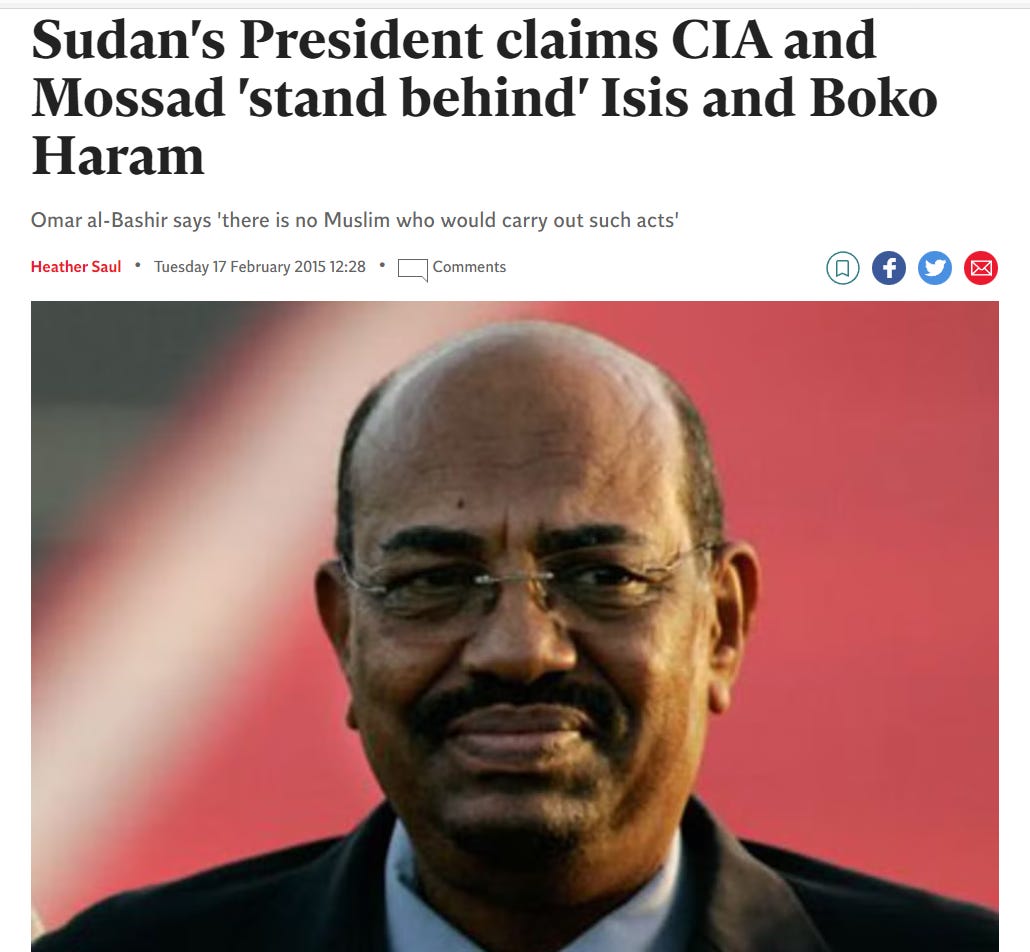NATO will confront Russia in West Africa
Why Mauritania is turning into an alliance outpost in the region - a recent report by Nikolay Dmitrievich Plotnikov outlines the potential for a new NATO front with Russia with Mauritania converted into a NATO alliance outpost in the region.
The following is a translation of the article in Russian. Click on images for supporting links that I have added:
Western ‘peacekeeping missions’ in Mali have failed. Following France and Britain, Germany is now considering the withdrawal of their troops from Mali. The rationale is universally accepted - the increase in Islamist activity in Mali and the alleged expansion of Russian military presence aligned to the much talked about PMC Wagner group.
However, the collective West and NATO does not have any intention of leaving. The alliance outpost and base is the Islamic Republic of Mauritania (IRM). It is first choice because it borders on Western Sahara, Senegal, Algeria, Mali and is at the junction of two key areas of West Africa - Maghreb and Sahel. The IRM has become more important since Mahel was released from the Sahel Group of Five (G5 Sahel) with headquarters in Nouakchott, the capital of Mauritania.
The members were Mali, Burkina Faso, Niger, Chad and Mauritania.According to NATO leadership, cooperation with IRM will help maintain NATO influence on the southern flank of the Tropic of Cancer in the Atlantic Ocean and Central Africa. According to the Secretary General of the Alliance, Jens Stoltenberg, this will enable NATO to compete with the growing influence of Russia and China in the region, using ‘economic leverage’ to advance NATO interests.It is difficult to determine where Stoltenberg’s fears about Russian expansion come from. Perhaps he was worried by Moscow’s intentions to hold the second Russian-African summit in 2023? However this is the sovereign business of Russia and African countries.
Prevention tactics were to replace the Kremlin’s influence with various new alliance delegations. In turn, Moorish officials became welcome guests at NATO headquarters.
Mauritania has been a historical partner of the North Atlantic Alliance in the framework of the Mediterranean Dialogue since 1995 - other partners are Algeria, Egypt, Israel, Jordan, Morocco and Tunisia. Based on the Individual Partnership Plan, NATO specialists consult and train the command staff of the national army and security structures of Mauritania. They also assist in building the capacity and military infrastructure of its armed forces.
At the alliance summit in Brussels in June 2021 NATO’s collective security threat was announced in connection with the escalation in the Sahara-Sahel region. At the summit in Madrid 2022, Mauritania announced the allocation of a new “aid” package. Details of the package were not disclosed. In general terms it is believed that the assistance will be targeting support for the Moorish army - for Intelligence, special operations and ensuring maritime security.

The alleged basis of cooperation with Mauritania is the fight against ‘International Terrorism’ on the borders. The groups include Islamic State, Al Qaeda of the Islamic Maghreb, Ansar Al Din, Boko Haram. All these groups are designated terrorists and are banned in Russia. However despite claims of combatting terrorism, NATO countries have not been able to assure the safety of civilian populations during the so-called anti-terrorist operations conducted since 2014.
The EU ‘humanitarian’ projects are also negligible. In addition to the aggravation of the terrorism wave in Mali, CAR, Niger and Chad - Latin American cocaine and Afghan heroin are entering the EU transiting through West African countries. There is also a flow of illegal migration and weapons [including from Ukraine]

The West is more concerned with access to the region’s mineral resources. EU industry and military has its eye on the supply of African cobalt, mica, zinc, lead, copper, titanium, zirconium, manganese, chromium, platinum group metals, uranium and bauxite.The current situation in West Africa is seen by NATO as a convenient time to pivot the bloc’s policy towards Africa. Having outlined the intention to provide ‘assistance’ to the region, Brussels retains the capability to support crisis processes by projecting force from the relatively stable Mauritania territories.
The increasing geostrategic value of the IRM for NATO coincides with its growing importance as a producer and exporter of natural gas. At the expense of Mauritania, NATO European countries expect to strengthen their own energy security.
To this end, Brussels plans to help resolve the differences between Nouakchott and Rabat and to ensure in the medium term the supply of natural gas from offshore fields in the Moorish territorial waters ( of the « Torto Ahmeim », « Bir Allah » and « Orka » ) and Western Sahara ( pool in the area of. Dahla ). According to Mauritania's Minister of Oil Abdessalam Ould Salah, his country is ready to become a primary source of blue fuel to the EU against the backdrop of sanctions on Russia and the loss of Russian gas supply.
NATO also predicts that the bloc’s military presence in the region will facilitate the construction of the Nigerian underwater gas pipeline to Morocco which will run along the western coast of Africa. Agreements on this project were signed in September 2022.Thus in a very short time Mauritania has become NATO’s primary partner in the region. Judging by statements emitted from Brussels the role the country will play is not an enviable one.
It will not only become the NATO base for countering Russian ‘expansion’ in West Africa but will also be instrumental in countering Russian foreign policy on the entire African continent.
***








